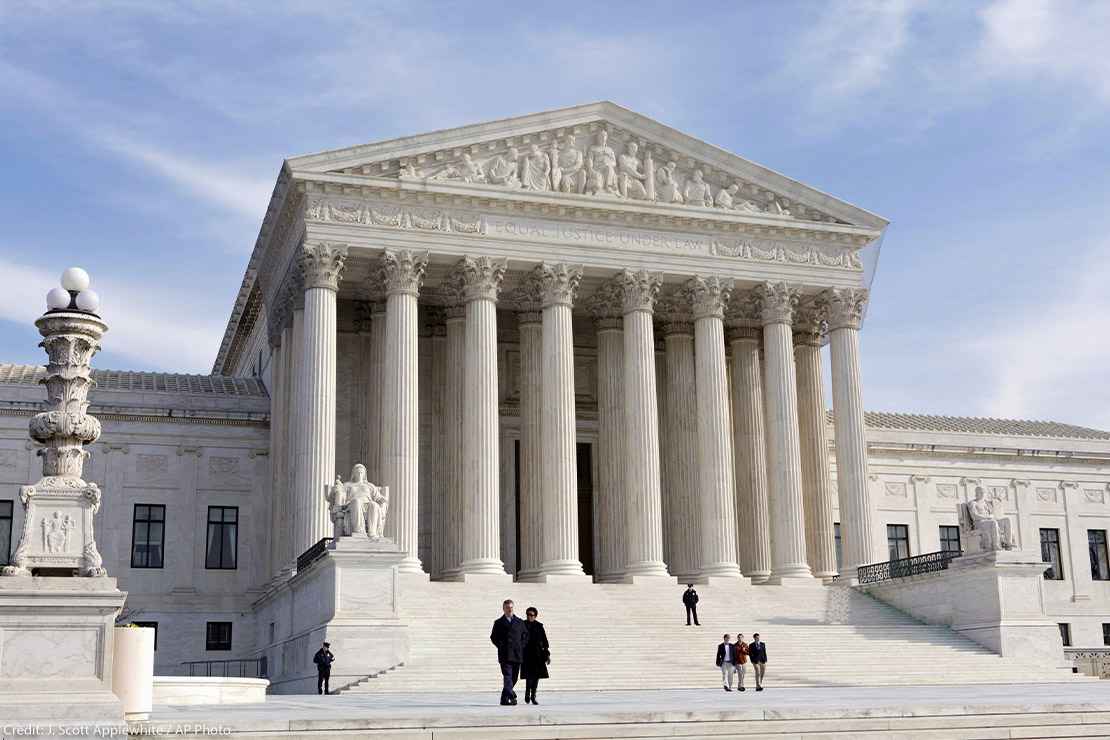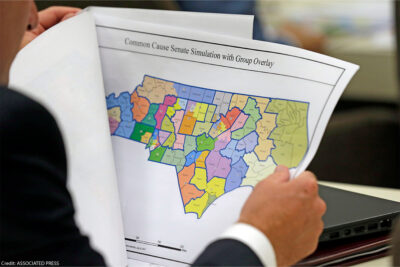
Moore v. Harper (Amicus)
What's at Stake
Can state legislatures draw gerrymandered districts and make other rules for federal elections without any check from state courts applying the rules of their own state constitutions?
Summary
After 2020 redistricting, the North Carolina Supreme Court struck down North Carolina’s legislatively-enacted congressional map as an extreme partisan gerrymander, holding that such extreme gerrymanders violate the North Carolina Constitution. In Moore, a group of North Carolina legislators appeal, asking the U.S. Supreme Court to restore the gerrymandered map by gutting the power of state courts to check and balance state legislatures.
The Moore petitioners ask the U.S. Supreme Court to eliminate state judicial review of state legislative enactments touching upon federal elections, including the type of partisan gerrymandering that both parties engage in (and voters rightfully detest). The legislators say that when state legislatures make rules for federal elections, they operate outside the very charters that create them, untouched by the state constitution. They claim that this is so merely because the U.S. Constitution’s Elections Clause uses the word “legislature.”
The ACLU, joined by our affiliate the ACLU of North Carolina, the Rutherford Institute, and the Niskanen Center, filed an amicus brief in Moore demonstrating how petitioners’ radical theory flunks all of the traditional modes of constitutional analysis. As we explain, petitioners’ independent legislature theory is contrary to the Constitution’s original and ordinary meaning: The Framers fundamentally understood the power of “legislatures” and indeed all lawmaking power to be drawn from and bound by a written constitution. Petitioners’ theory is also contrary to the Constitution’s federalist design, which requires deference to the way that state constitutions arrange the checks and balances of state government (including by creating independent judiciaries with judicial review power). And Petitioners’ theory is also contrary to very recent precedent, specifically the Court’s 2019 Rucho v. Common Cause decision which invited state courts to address the problem of partisan gerrymandering under state law.
The theory advanced in Moore would also have disastrous practical consequences. It would green-light rampant, unchecked partisan gerrymandering just as state courts have begun to step in to address that issue, as they did this year in Ohio, New York, and Maryland as well as North Carolina. And it would open a Pandora’s Box of unreviewable election rules in other areas, like mail ballot rules, voter registration rules, and more.
The “independent legislature” idea is contrary to basic nature of American constitutional government, whereby all governmental power is exercised within the framework of a written constitution. We urge the Court to reaffirm the rule that has been in place since our Constitution was ratified: State legislatures always act subject to the state constitutions that charter them and define their powers.
In a 6-3 decision, the U.S. Supreme Court ruled that the U.S. Constitution’s Elections Clause does not allow state legislatures to ignore their own state constitutions when making rules for federal elections, rejecting the “independent state legislature” theory.
Legal Documents
-
10/26/2022
Brief for Amici Curiae the American Civil Liberties Union, the ACLU of North Carolina, the Rutherford Institute, and the Niskanen Center in Support of Respondents
Date Filed: 10/26/2022
Court: Supreme Court
Download DocumentPress Releases
ACLU Comment on Supreme Court Ruling in North Carolina Redistricting Case

